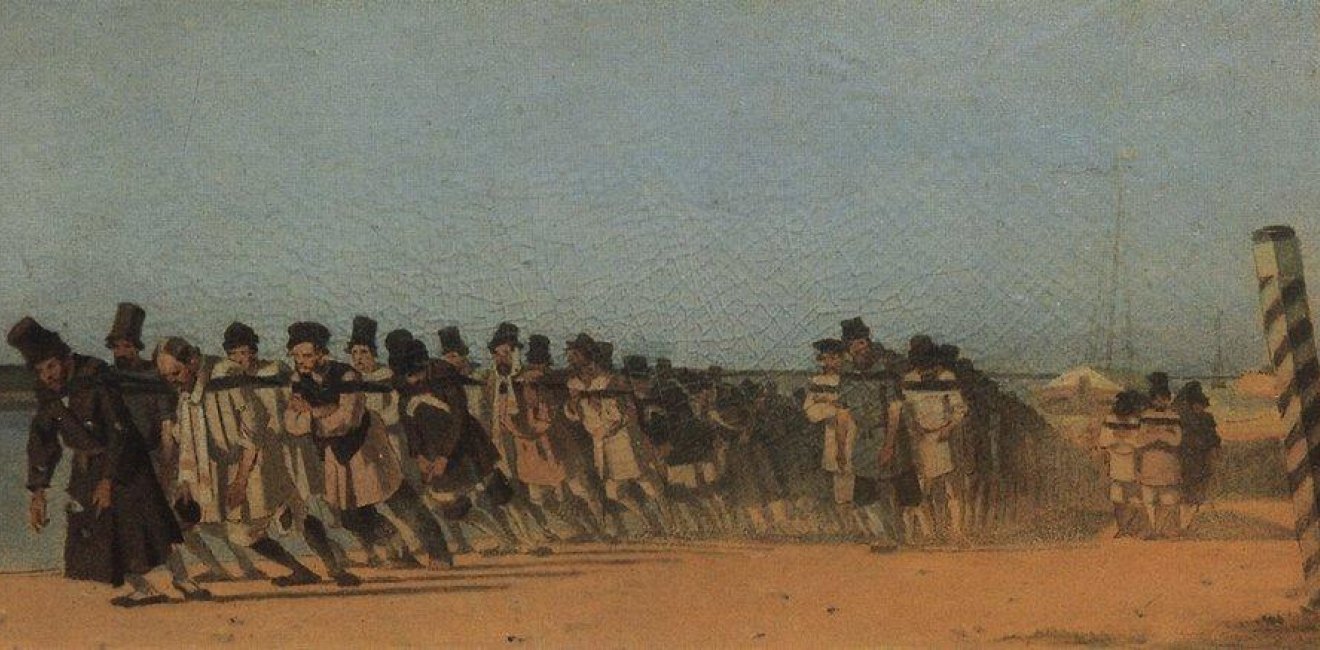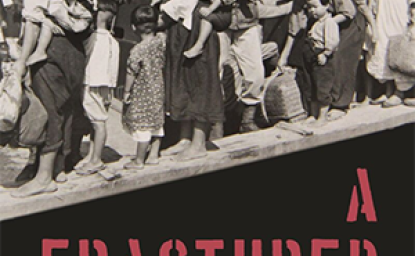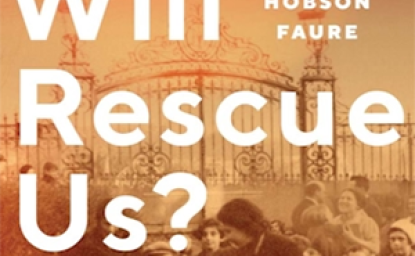
Q: Describe your background and what brought you to the Wilson Center.
I am a scholar of Russian culture and an educator, with a PhD in Slavic Languages and Literatures from the University of Southern California. I like to think of myself as a generalist in my field, as I am largely unconstrained by a historical period, literary or artistic genre, or historical figure. That said, much of my research deals with questions about power, dominance, and human agency. I am especially fond of finding and examining paradoxes that arise in culture. In the last few years, I have developed a passion for reading Russian Imperial, Soviet, and contemporary laws and decrees. This passion brought me to the Wilson Center’s Kennan Institute in 2024. I found the center to be the most encouraging, engaging, and collegiate environment for research.
Q: What project are you working on at the Center?
I am working on a book that examines vagrancy in Russian culture. This is a work of cultural criticism that sets forth a comprehensive discussion of vagrancy (brodiazhnichestvo) in Russia as a historical, legal, and cultural phenomenon. As I analyze Imperial and Soviet laws, literary texts, paintings, and films, I argue that vagrant stories produced in the nineteenth century were instrumental in shaping Russian views on freedom and mobility. This broad understanding of freedom still defines Russian culture today. Here I speak about the Russian word “volia” rather than “svoboda,” both of which mean liberty or freedom. As so many scholars have argued, these two terms are not the same. Svoboda is generally linked to civil rights, whereas volia is svoboda’s disorderly double, the free will or volition to do whatever one desires and go wherever one wants. In my book, I problematize the automatic pairing of svoboda and volia, which has become overused in the field of Slavic literary studies to address literature where freedom and mobility are notably absent. Instead, I shift the focus to investigate the concept of nevolia, or unfreedom, and examine how it functions in the cultural sphere. In addition to examining the legal strategies used to turn subjects into vagrants without rights, the goal of my book is to show how literature and art countenanced, or even aided, the state in stripping Russian Imperial subjects and Soviet citizens of their political and social rights.
Q: How did you become interested in your current research topic?
I must deny myself all agency in this case. It always felt like this topic chose me, rather than the other way around. Writing my first article on pregnant men in Russian and Italian futurisms, I wondered why Vladimir Mayakovsky in his 1913 play A Tragedy described nearly everyone as dirty, unhoused, or having a disability. Haphazardly, I called these people “vagrants” and tried to answer how many vagrants were there in Moscow in 1913. This question led me down a rabbit hole for nearly a decade. I kept seeing vagrants everywhere. Living in Los Angeles at the time made this topic much more relevant and immediate, as the homelessness crisis was and still is on everyone’s mind. This research, I believe, made me humbler and a little more humane.
Q: Why do you believe that your research matters to a wider audience?
In this book, I show that historically, vagrancy is not a mythical state of mind, which various belletrists would like us to believe, but a criminal offense and a catch-all law. In Russia, hundreds of legal decrees and hundreds of thousands of convicted vagrants prove as much. Although Russia is a great case study, vagrancy laws are not specific to this region. In fact, in the United States, vagrancy laws were invalidated in the early 1970s. Incidentally, it is exactly when the Soviets publicly reinstated vagrancy laws in the USSR (vagrancy decrees existed for decades but were classified). Recent observations, particularly since the beginning of the war in Ukraine, lead me to believe that the way the Russian authorities deal with the unhoused people is not different from 19th-century practices. For example, those who are deemed unhoused or somehow vulnerable are collected and dispatched to warzones. The word “vagrancy” comes up in decrees and in the news, which is surprising. It seems that I am not the only one who fears the return of vagrancy laws with their vague definitions. Several other scholars who study vagrancy laws in different countries have also suggested in the past that the days of criminalizing vagrancy are not over.
This research is undertaken at a time when the US is experiencing a homelessness crisis and when humanitarians, social workers, and sociologists struggle to find solutions and even determine the complexity of the problem, whereas theorists scrutinize the terminology used to define people who experience homelessness. While my research does not provide viable solutions, my analysis of literature and art can show how many writers and artists attempted to represent vagrants. I would argue that Russian fictional texts about vagrants reveal more about the writers themselves than the vagrants.
Q: What is the most challenging aspect of your research?
The biggest challenge is an inability to work in historical archives and access criminal cases from the 19th century. I had to abandon an entire line of inquiry, which could have enhanced my understanding of vagrancy as a criminal charge even further.
Q: What do you hope the impact of your research will be?
I hope that my research will reveal to my colleagues in Slavic studies that there is another literary character type to think about and that vagrant characters have their own set of tropes and motifs and their own function in Russian literature. Most of all, however, I hope that my research will convince my readers that criminalizing poverty is not productive and that when we say “why the police won’t do anything about the homeless,” we also deliberate for a moment on the nature of the crime and the appropriateness of the punishment.
The opinions expressed in this article are those solely of the author and do not reflect the views of the Kennan Institute
Author

Postdoctoral Scholar at Florida State University

Kennan Institute
After more than 50 years as a vital part of the Wilson Center legacy, the Kennan Institute has become an independent think tank. You can find the current website for the Kennan Institute at kennaninstitute.org. Please look for future announcements about partnership activities between the Wilson Center and the Kennan Institute at Wilson Center Press Room. The Kennan Institute is the premier US center for advanced research on Eurasia and the oldest and largest regional program at the Woodrow Wilson International Center for Scholars. The Kennan Institute is committed to improving American understanding of Russia, Ukraine, Central Asia, the South Caucasus, and the surrounding region through research and exchange. Read more





